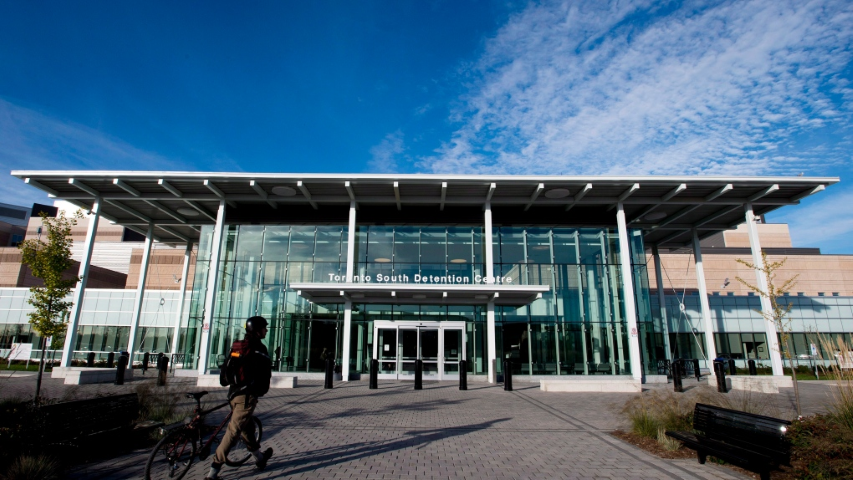
On Thursday, October 3, 2013, a glimpse of the Toronto South Detention Centre in Toronto was captured. Anticipated to open in the coming fall. This photo was taken by Nathan Denette for THE CANADIAN PRESS.
In a recent development, numerous criminals convicted of offenses ranging from knife attacks to drug trafficking, and child pornography are seeing reduced sentences and early releases amid an ongoing dispute between Ontario judges and the provincial government over the deplorable conditions in Toronto South Detention Centre, commonly referred to as "Guantanamo South."
Over the past year, court records indicate that at least 24 individuals have had their time in custody shortened due to frequent lockdowns, pest infestations, and other harsh conditions at the detention centre located near Kipling Avenue and the Gardiner Expressway in Etobicoke. Judges are granting additional credit for time served in these inhumane conditions, emphasizing the notorious state of the facility. Critics argue that the Ontario government is turning a blind eye to the issue.
Toronto lawyer Christian Pearce highlighted the commonality of such situations, citing the case of his client Yanique Ellison. Ellison received a six-month deduction after pleading guilty to manslaughter. His time behind bars involved being triple-bunked in a two-person cell, enduring extended lockdowns, and facing a lack of privacy, forcing inmates to perform personal functions in front of cellmates.
The Toronto South Detention Centre, run by the province, houses pre-trial detainees and those sentenced to less than two years in prison. Lockdowns, initially employed to manage the challenges of the COVID-19 pandemic, have also been attributed to chronic staff shortages, a long-standing issue predating the pandemic, and one that poses potential risks to public safety upon the inmates' release, according to Pearce.
Critics argue that the lack of rehabilitation opportunities, limited access to programming, and deteriorating conditions contribute to making inmates worse off, angrier, and less likely to reintegrate into society.
Several cases brought forward by inmates reveal shocking conditions, including infestations of ants, cockroaches, and spiders, as well as instances where inmates were denied clean laundry. Injuries sustained while in custody, such as a severed finger tendon, were reportedly neglected, further emphasizing the need for improved care.
In response to the growing concerns, the provincial government claims to have deployed over 2,000 new correctional officers since July 2020, with 434 assigned to the Toronto South Detention Centre. A spokesperson announced a $500 million investment over five years to modernize the institution, address capacity issues, and enhance programming, mental health services, and correctional officer training.
Despite these efforts, the NDP's Justice Critic, Kristyn Wong-Tam, attributes dysfunction in the justice system to underfunding and staff shortages, affecting judges' sentencing decisions. Wong-Tam emphasizes the ripple effects of overcrowded detention centers, leading to increased conflict, disease, and burnout among staff.
Judges, applying a precedent set in R v. Marshall, consider harsh conditions as a mitigating factor in sentencing, but they aim to maintain a balance, ensuring the punishment aligns with the severity of the crime.
In the face of mounting criticism and ongoing challenges at the Toronto South Detention Centre, the province's justice system confronts a critical juncture in addressing systemic issues and ensuring the humane treatment of inmates.















